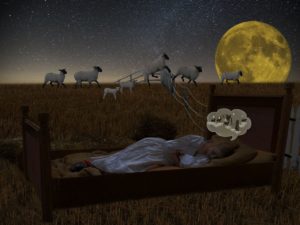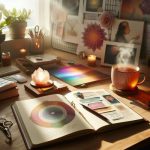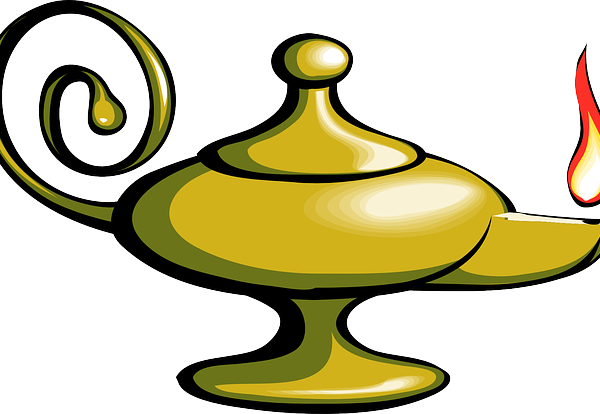Insomnia is something we all experience occasionally but when it’s the rule, not the exception, it’s definitely time to address it.
Sure, you can take various pills and potions – and if your doctor says you need to, you should certainly take their advice – but longer term it’s best to find a method that doesn’t have a list of side effects that you could experience.
Which is where natural methods to get rid of insomnia come into play.
Keep to a regular sleep routine
 We like habits and keeping a regular sleep routine is an excellent habit to adopt.
We like habits and keeping a regular sleep routine is an excellent habit to adopt.
Bed time should be in a fairly small range – not 10pm one day, midnight another day, 3am on a different day. And definitely don’t pull an all-nighter otherwise you’ll be out of kilter for at least the next day.
If you can turn bed time into almost a ritual, even better.
So there’s a set time to switch off all screens; a time to stop drinking caffeine (when I was cutting down on caffeine, that was noon, now I’m on decaff); a time and a limit on alcohol if you drink it; reducing any reliance on recreational drugs.
Maybe even listening to a brainwave MP3 to get your mind totally in the mood for sleep.
Exercise regularly
I know, it’s probably not what you want to hear (gyms are torture chambers in my opinion) but exercise does help.
If you don’t get much exercise, see what you can change in your regular routine without really noticing.
For instance, I’ll take the stairs rather than an elevator. OK, the time I took 9 flights when I was visiting someone in hospital was over the top but most of the time a couple of flights are easy and often quicker than waiting for a machine to arrive.
Walking more is another way to get a bit more exercise. If it’s a short journey, it could be quicker than trying to find a parking place. And even parking a bit further away from the entrance to the store helps.
The 10,000 steps target was originally a finger in the air figure – no tests, no trials – so don’t get too hung up on the number of steps you do. And rather than using an expensive gadget, put a pedometer app on your phone. It’s not totally accurate (but nor are any of the other options) but the free app I use counts steps, calories, distance and stores all those figures so I’ve got daily, weekly and monthly numbers to check. All on my phone.
Enjoy daylight (or artificial daylight)
Depending on where you are in the world, daylight might be scarce at some times of the year.
Seasonal affective disorder (SAD) is known to affect people in the winter, when natural light is scarce.
If you suffer from this, it won’t be helping you sleep at night either. There are SAD lamps that you can use on your desk to help overcome the issues of not enough natural light – they’re a lot more natural than taking medication and work quite fast.
Check your sleep environment
Lots of things affect our sleep – not just the routine we go through at night.
Your bedroom should be as dark as possible – if your curtains or blinds let in too much light or you just haven’t closed them properly, so light is creeping in, that will affect your insomnia. Light includes all the small lights like the standby ones on electronics and even the fluorescent parts of your watch dial. Be aware of everything that reduces the amount of darkness in your bedroom and address it.
Temperature is another thing to be aware of. Do your best to keep it consistent every night – that means room temperature, blankets or duvets, pyjamas and anything else that causes differences in temperature on different nights.
Hide your alarm clock
Apart from any light it might give out, there’s nothing worse than looking at the clock every few seconds and seeing the same time. Not only does it remind you that you’re still awake but because you’re looking at it way too often it seems as though time has stood still. Which then feeds your insomnia even more.
Skip the news
Most news is negative and (unless it’s live on 24 hour rolling news) it’s in the past.
It’s probably happening somewhere else entirely so there’s nothing you can do about it apart from worry and (literally) lose sleep over it.
Go on a news fast – much the same as a food fast but cutting out the news as much as possible, ideally entirely.
And even if you don’t manage to get to this ideal solution, make sure you don’t check the news too soon before going to bed.
Play yourself a relaxing track
Music helps calm us and can put us in the mood for sleep.
There are lots of tracks around – chances are Spotify will suggest a few for you, as will YouTube.
Or you could play yourself something from your own collection – just remember to keep screen time to a minimum if the collection is on your phone.
Or you could play a specially designed sleep track that’s been scientifically designed to give you a perfect night’s sleep.
Whatever you decide, I wish you every success in getting rid of your insomnia.











